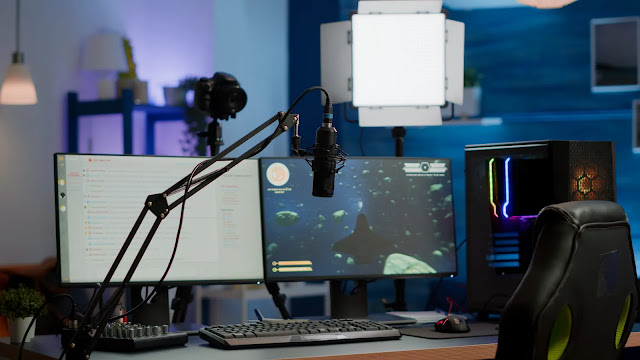Why On-Page SEO is Crucial for Your Website
On-page SEO refers to the optimization of individual web pages to rank higher and earn more relevant traffic in search engines. It involves optimizing both the content and HTML source code of a page, unlike off-page SEO which involves external signals like backlinks.
On-page SEO is a fundamental aspect of digital marketing. It ensures that a website is search engine-friendly, which helps in improving its visibility and attracting more visitors. A well-optimized page is more likely to appear at the top of search engine results, making it easier for potential customers to find the website.
Key Components of On-Page SEO
Title Tags
Title tags are HTML elements that specify the title of a web page. They are crucial for SEO as they help search engines understand the content of a page. A well-crafted title tag can significantly improve a page's visibility in search results.
Meta Descriptions
Meta descriptions are brief summaries of a web page's content. They appear below the title tag in search engine results and can influence click-through rates. Although meta descriptions do not directly impact rankings, they are vital for attracting visitors to your site.
Header Tags (H1, H2, H3)
Header tags are used to structure content on a web page. The H1 tag is usually the title of the page, while H2 and H3 tags are used for subheadings. Proper use of header tags enhances readability and helps search engines understand the hierarchy of content.
URL Structure
A clean and descriptive URL structure is important for both users and search engines. URLs should be concise, include relevant keywords, and avoid unnecessary parameters. A well-structured URL can improve click-through rates and enhance user experience.
Internal Linking
Internal links are hyperlinks that point to other pages within the same website. They help search engines crawl and index the site more efficiently and also guide users to relevant content, improving overall site navigation.
Content Optimization
High-quality, relevant content is the cornerstone of on-page SEO. Content should be informative, engaging, and tailored to the target audience. Incorporating relevant keywords naturally within the content is essential for improving search engine rankings.
Image Optimization
Images should be optimized to enhance page load speed and improve user experience. This involves using appropriate file formats, compressing images, and adding descriptive alt text to help search engines understand the content of the images.
Mobile Friendliness
With the increasing use of mobile devices, having a mobile-friendly website is crucial. A responsive design ensures that a website looks and functions well on all devices, which can positively impact search engine rankings and user experience.
Benefits of On-Page SEO
Improved Search Engine Rankings
Effective on-page SEO helps improve a website's search engine rankings, making it more likely to appear at the top of search results for relevant queries. This increased visibility can lead to more traffic and higher chances of conversions.
Enhanced User Experience
On-page SEO focuses on creating a better user experience by improving site structure, content quality, and page load speed. A positive user experience can lead to higher engagement and lower bounce rates.
Increased Organic Traffic
Optimizing individual web pages can attract more organic traffic from search engines. High-quality content that addresses user queries effectively can result in more visitors finding and interacting with your site.
Higher Conversion Rates
A well-optimized page not only attracts more visitors but also encourages them to take desired actions, such as making a purchase or signing up for a newsletter. This can lead to higher conversion rates and increased revenue.
Better Crawlability and Indexing
On-page SEO ensures that search engines can easily crawl and index your website. Proper use of internal links, clean URL structures, and optimized content all contribute to better crawlability and indexing.
Best Practices for On-Page SEO
Keyword Research and Usage
Conduct thorough keyword research to identify relevant keywords for your content. Use these keywords naturally within your content, title tags, meta descriptions, and header tags to improve search engine rankings.
Content Quality and Relevance
Focus on creating high-quality, relevant content that addresses the needs and interests of your target audience. Content should be informative, engaging, and updated regularly to remain relevant.
Proper Use of Header Tags
Use header tags (H1, H2, H3) to structure your content logically. This helps search engines understand the hierarchy and importance of different sections of your content, and it enhances readability for users.
Optimizing Images and Media
Optimize images and media by using appropriate file formats, compressing files to reduce load times, and adding descriptive alt text. This improves page load speed and helps search engines understand the content of your images.
Ensuring Mobile Compatibility
Ensure your website is mobile-friendly by using responsive design techniques. A mobile-compatible site provides a better user experience and can positively impact your search engine rankings.
Regularly Updating Content
Keep your content fresh and up-to-date by regularly reviewing and updating it. This helps maintain relevance and can improve your search engine rankings over time.
Common On-Page SEO Mistakes to Avoid
Keyword Stuffing
Avoid overloading your content with keywords. Keyword stuffing can lead to penalties from search engines and negatively impact user experience. Instead, use keywords naturally and contextually.
Ignoring Meta Descriptions
Don't overlook the importance of meta descriptions. Crafting compelling and relevant meta descriptions can improve click-through rates and attract more visitors to your site.
Poor Quality Content
Low-quality content can harm your search engine rankings and deter visitors. Focus on creating high-quality, informative, and engaging content that provides value to your audience.
Lack of Mobile Optimization
Failing to optimize your site for mobile devices can result in poor user experience and lower search engine rankings. Ensure your site is mobile-friendly to cater to the growing number of mobile users.
Broken Links
Broken links can frustrate users and negatively impact your site's SEO. Regularly check for and fix broken links to maintain a positive user experience and improve crawlability.
Tools and Resources for On-Page SEO
SEO Analysis Tools
Use SEO analysis tools like Google Analytics and SEMrush to monitor and analyze your site's performance. These tools provide valuable insights into traffic, user behavior, and optimization opportunities.
Keyword Research Tools
Utilize keyword research tools like Google Keyword Planner and Ahrefs to identify relevant keywords for your content. These tools can help you discover new keywords and assess their competitiveness.
Content Optimization Tools
Content optimization tools like Yoast SEO and Moz can assist in optimizing your content for search engines. These tools offer suggestions for improving on-page SEO elements and overall content quality.
Conclusion
On-page SEO is a crucial aspect of digital marketing that involves optimizing individual web pages to improve search engine rankings and attract more visitors. By focusing on key components like title tags, meta descriptions, header tags, and content optimization, you can enhance your site's visibility and user experience.
To create an effective on-page SEO strategy, conduct thorough keyword research, create high-quality and relevant content, use header tags properly, optimize images, ensure mobile compatibility, and regularly update your content. Avoid common mistakes like keyword stuffing and broken links, and leverage SEO tools and resources to monitor and improve your site's performance. If you feel like you are unable to handle it yourself, you can outsource the job to SEO specialists who can build your page up the rankings of the search engine.
FAQs about On-Page SEO
What is the difference between on-page and off-page SEO?
On-page SEO involves optimizing the content and HTML source code of individual web pages, while off-page SEO focuses on external signals like backlinks and social media engagement to improve a site's search engine rankings.
How often should I update my on-page SEO?
Regularly updating your on-page SEO is important to maintain relevance and improve search engine rankings. Review and update your content, keywords, and other on-page elements periodically to stay competitive.
Can I do on-page SEO myself, or do I need a professional?
While many aspects of on-page SEO can be done by yourself, hiring a professional can provide expert insights and ensure that your site is optimized effectively. Using tools and resources can also help you manage on-page SEO tasks independently.




Comments
Post a Comment